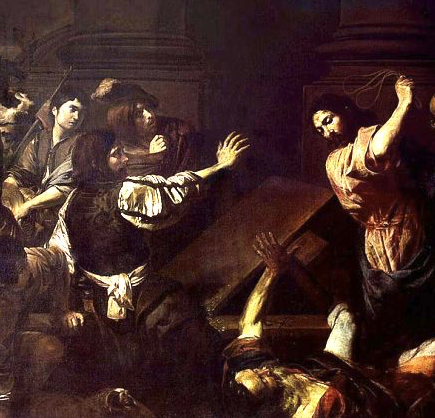Jesus and Wealth – Part Two

Jesus in Galilee
What was the economic situation in Galilee when Jesus was alive? Given the importance of the question, one might think that the answer would be clear, but it is not. Some scholars believe that times were relatively good. Herod’s massive building projects in the cities of Sepphoris and Tiberius uplifted the economy, benefitting many. The demand for fish and fish products was high throughout the empire, and the fishing industry was enjoying good profits.
But the evidence can also be interpreted to the contrary. Fancy buildings required money, and so the taxes were increased, to the point where farmers were driven to subsistence, forced to borrow from the wealthy, one bad crop away from indebtedness beyond their ability to pay, thereby losing their land to the city elite, who continually added to their estate and their wealth. As for fishing, the boats themselves were big and costly, required an expensive permit issued by the authorities, and the whole enterprise was dependent on a network of other industries- those who made sails, anchors, nets, and merchants who bought and sold. All of that points to a centralization of power and wealth capable of the finance and coordination required for success, a capability beyond the grasp of the individual fisher. The conclusion, for these scholars, is that in Galilee power and wealth were concentrated in the pockets of the few, the vast majority of the population trapped in poverty.
So who is right? Did Jesus live and move in a society that was doing alright economically, or one mired in poverty? Or does the question not really matter? The fact is that, however few or many, there are always those who do not benefit from the bounty, those whom we label as “poor”. The causes of poverty are many, not least of which is exclusion and oppression by the rich and powerful, which, given the social institutions of the Roman Empire, seems a likely cause. My assumption, therefore, is that poverty was prevalent in Galilee during the time of Jesus, with the understanding that should poverty not have been the fate of everyone, it was definitely the fate of a substantial portion of the populace. Furthermore, whether or not any economic benefit “trickled down”, the hard truth is that the Galilee that Jesus roamed was controlled by the rich and powerful and nothing was hidden. The patronage and patriarchal systems of oppression were simply the way it was for everybody. You couldn’t question it because it was the Roman way, sedition being immediately punishable by death, often crucifixion. Although not all the rich were greedy, a sufficient number were, and they managed to have Jesus crucified.
And where does Jesus fall on the scale of poverty? Few of us are accustomed to the idea that Jesus grew up in poverty. We think of him as a carpenter’s son, lower middle class perhaps, but middle class just the same. But does it matter? Whether poor or middle class, Jesus was well aware of the status and plight of the poor, and he took up their cause.
Taking it all together, it seems to me that Jesus and most of Galilee were impoverished by the rich and powerful. The Roman empire ruled by legion, Caesar in full command, with a host of lesser rulers, governors and kings implementing the imperial order. The vast majority of the territory was rural, inhabited by peasantry, with the elite administrative/priestly/
But there was tension. Side by side within the history of Israel were two trends. One was the continually repeated turning away from the God they worshipped, a turning manifest not only in idolatry but also injustice and oppression. The other was a voice calling for justice for the “widow and the orphan”, those downtrodden by the rich and powerful. The various and detailed laws of Leviticus and Deuteronomy, the core of Hebrew society, attempt to portray a society ruled by compassion. Recognizing the dehumanizing power of peasant indebtedness, the law prescribed loan forgiveness every seventh year, and the return of ancestral lands to the original owner every 49 years. Probably not stringently enforced, but an ideal to envision.
Beside the Law, the other creator of tension was the prophetic tradition, those original speakers of truth to power. Who can forget these words of Amos, “Let justice roll down like waters and righteousness like an everflowing stream.”? How can we not relive the face-to-face moments when prophets walked into the king’s court and the king’s garden in order to pronounce the Lord’s destruction of his kingdom because of the king’s injustices? The Law and the Prophets. Jesus continually asks those who approach him for advice,”What does the Law say?” And, historical or not, his first public message in the synagogue was a reading from the prophet Isaiah: “Behold…I have come to proclaim release to the captives.” Suffering under the heavy hand of oppression by the rich and powerful there lurked in the land a belief in an alternative power of righteousness and justice, a power that Jesus could not and did not ignore.
~~~~~~~~~~~~~~~

